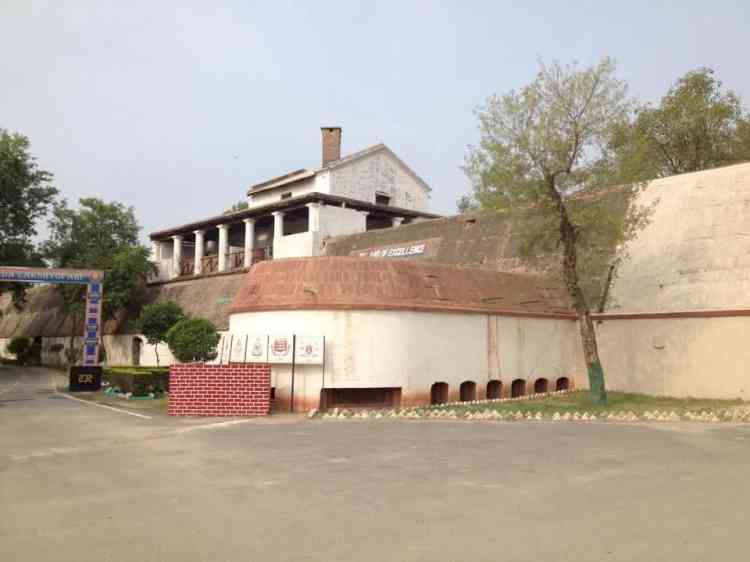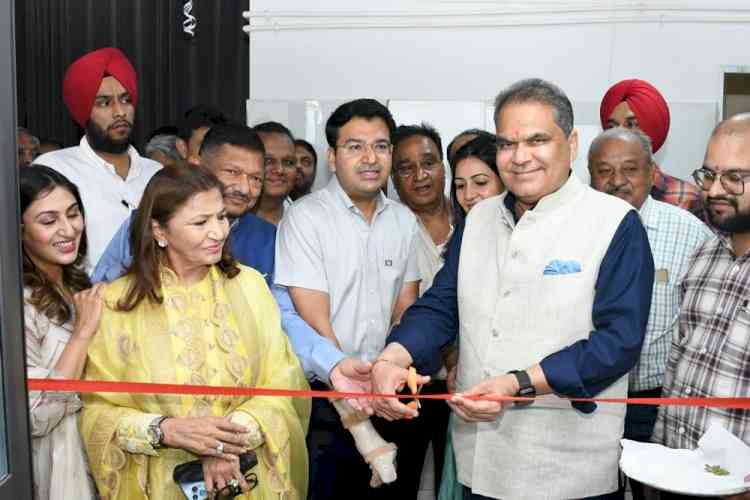World Tuberculosis Day 2025: Fortis Hospital Ludhiana Calls for Awareness and Action to eliminate TB
Tuberculosis (TB) remains one of the most pressing health challenges in India, but with increased awareness, timely intervention, and medical advancements, it can be eliminated. Dr. Randeep Singh, Associate Consultant – Pulmonology & Critical Care at Fortis Hospital, Ludhiana emphasized the critical role of early diagnosis and adherence to treatment in the fight against TB.

Ludhiana, March 24, 2025: Tuberculosis (TB) remains one of the most pressing health challenges in India, but with increased awareness, timely intervention, and medical advancements, it can be eliminated. Dr. Randeep Singh, Associate Consultant – Pulmonology & Critical Care at Fortis Hospital, Ludhiana emphasized the critical role of early diagnosis and adherence to treatment in the fight against TB.
Fortis Hospital Ludhiana is committed to supporting TB awareness and treatment initiatives, ensuring patients receive accurate diagnosis and effective care. With advancements in molecular diagnostics and improved accessibility to treatment, India is making significant strides toward achieving its goal of a TB-free future.
Dr. Randeep Singh, Associate Consultant – Pulmonology & Critical Care, Fortis Hospital Ludhiana, stated, "TB remains a pressing global health challenge, but with awareness, action, and medical advancements, we can end this disease. Timely diagnosis, adherence to treatment, and preventive strategies are essential steps in eradicating TB from our communities."
While Pulmonary TB is the most common form, TB can also affect other organs, including the lymph nodes, central nervous system (CNS), abdomen, bones, and joints, leading to extra-pulmonary TB. The ailment primarily affects the lungs and presents with symptoms such as a persistent cough lasting more than two to three weeks, fever, night sweats, unexplained weight loss, and swollen lymph nodes. Individuals with a history of TB or those living in high-risk regions should seek immediate medical attention if symptoms arise. Diagnosis is confirmed through laboratory testing of sputum, bronchoalveolar lavage, or tissue samples, with radiographic imaging playing a supplementary role.
Treatment for drug-sensitive TB consists of a six-month regimen of anti-TB drugs. The intensive phase, which lasts for two months, includes a combination of four drugs—isoniazid, rifampicin, pyrazinamide, and ethambutol—followed by a four-month continuation phase with three drugs. However, drug-resistant TB (DR-TB) is a growing concern, occurring when tuberculosis becomes resistant to first-line medications. This condition requires specialised second-line treatment and is more challenging to manage. Factors such as previous TB treatment, diabetes, and HIV increase the risk of developing TB. Dr Singh added, “BCG immunization remains a vital preventive measure, while practicing good respiratory hygiene, such as proper cough etiquette, can help curb transmission. Seeking timely medical care at the onset of symptoms can also contribute to effective TB control.”


 City Air News
City Air News 








